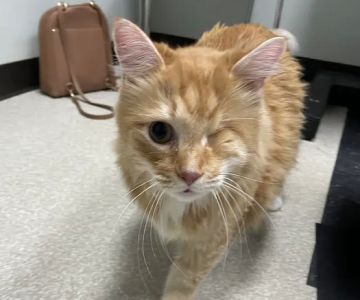Do You Call a Veterinarian a Doctor? Understanding the Term and Its Usage
- Introduction to the Veterinarian Profession
- Veterinarian vs. Doctor: What's the Difference?
- Veterinarian Qualifications and Training
- Common Misconceptions about Veterinarians
- When Should You Call a Veterinarian a Doctor?
- Conclusion and Final Thoughts
1. Introduction to the Veterinarian Profession
When we think of a doctor, our minds likely turn to human health care professionals. But what about veterinarians? Many people wonder if it's correct to call a veterinarian a doctor. The answer depends on context, but veterinarians are, in fact, highly educated professionals with a strong background in medicine. Veterinarians play a crucial role in animal health, and understanding their qualifications and responsibilities can help clarify their professional status.
2. Veterinarian vs. Doctor: What's the Difference?
The primary distinction between a veterinarian and a human doctor lies in their areas of expertise. While both are highly trained professionals in the field of health care, veterinarians specialize in animal health, while doctors focus on human health. However, both types of professionals require extensive education and hands-on training to diagnose and treat health issues. Despite the differences in their focus, veterinarians are often referred to as "doctors" in the same way medical doctors are. This is because they have earned a doctorate-level degree in veterinary medicine, typically a Doctor of Veterinary Medicine (DVM) or Veterinary Medical Doctor (VMD).
3. Veterinarian Qualifications and Training
Becoming a veterinarian requires years of rigorous education and training. In the United States, aspiring veterinarians must complete a bachelor's degree in a related field, such as biology or animal science, before attending a veterinary school for four years. Upon graduating, they earn a Doctor of Veterinary Medicine (DVM) degree. This level of training is equivalent to the training that medical doctors undergo, but with a focus on animal health. Additionally, veterinarians may specialize in specific areas of veterinary care, such as surgery, dentistry, or exotic animals, which requires even more advanced training.
4. Common Misconceptions about Veterinarians
One of the most common misconceptions about veterinarians is that their work is somehow less important than that of human doctors. While it's true that veterinarians treat animals and not humans, their role in our lives is just as important. They are responsible for the health of pets, livestock, and wildlife, and their expertise is vital to ensuring that animals live long, healthy lives. Another misconception is that veterinarians only work with pets like cats and dogs. In reality, veterinarians treat a wide range of animals, including farm animals, zoo animals, and even wildlife.
5. When Should You Call a Veterinarian a Doctor?
While the title "doctor" is often associated with human health professionals, it is entirely appropriate to refer to a veterinarian as a doctor. In fact, many people call their veterinarians "Doctor" when they visit for a checkup or treatment for their pets. This is because veterinarians have earned a doctoral degree and are highly trained medical professionals in their field. If you’re uncertain about addressing your veterinarian as a doctor, it’s perfectly fine to use the title as a sign of respect for their qualifications and expertise.
6. Conclusion and Final Thoughts
In conclusion, veterinarians are indeed doctors in their own right. They possess extensive education and expertise in diagnosing and treating animal health issues. While the term "doctor" is often associated with human healthcare, the title is equally fitting for veterinarians. By recognizing the critical role veterinarians play in maintaining the health and well-being of animals, we can better understand their professional status and the importance of their work. Whether you're taking your pet to the vet for a routine checkup or seeking treatment for a more serious issue, it's important to remember that your veterinarian is a highly qualified doctor of veterinary medicine.











